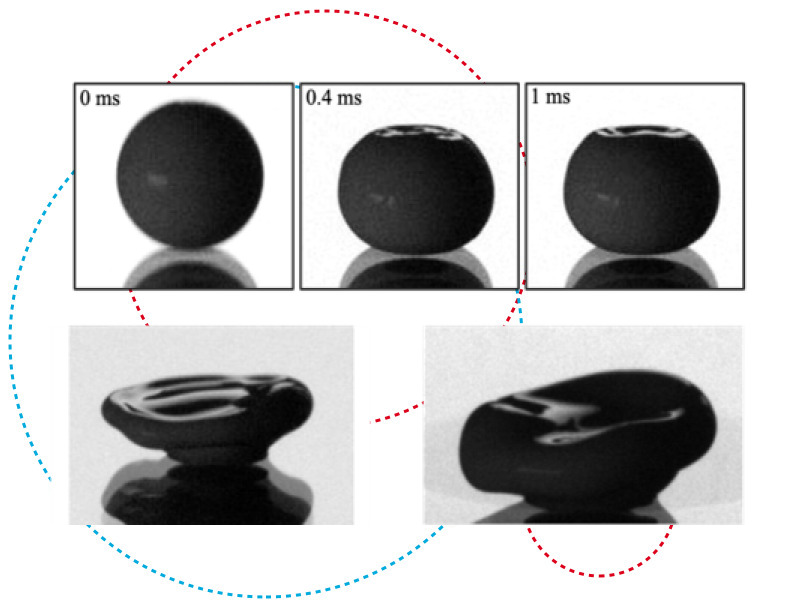SAVE THE DATE !
Monday, September 26, 2022 at 15:00
Complex fluids exhibit a variety of exotic flow behaviours under high stresses, such as shear thickening and shear jamming. Rheology is a powerful tool to characterise these flow behaviours over the bulk of the fluid. However, this technique is limited in its ability to probe fluid behaviour in a spatially resolved way. Here, I will show how we can utilize ultrahigh-speed imaging and the free-surface geometry in drop impact as a new tool for studying the flow of dense colloidal suspensions. In addition to observing Newtonian-like spreading and bulk shear jamming, we observe the transition between these regimes in the form of localized patches of jammed suspension in the spreading drop. This system offers a unique lens with which to study shear-thickening fluids, allowing us to obtain flow information in a spatially-localized manner, so that we can observe coexisting solid and liquid phases. Furthermore, we capture shear jamming as it occurs via a solidification front traveling from the impact point, and show that the speed of this front is set by how far the impact conditions are beyond the shear thickening transition.

Speaker bio:
Professor Michelle Driscoll is a soft condensed matter experimentalist, and her research lies at the junction between soft-matter physics and fluid dynamics. The Driscoll lab focuses on understanding how structure and patterns emerge in a driven system, and how to use this structure formation as a new way to probe nonequillibrium systems. The lab studies emergent structures in a diverse array of driven systems, from the microscopic to larger-scale. By developing a deeper understanding of patterns and structures which emerge dynamically in a driven material, we can learn not only how these structures can be controlled, but also how to use them to connect macroscopic behavior to microscopic properties. Before coming to Northwestern, Prof. Driscoll was a postdoctoral associate at New York University, working with Paul Chaikin in the Center for Soft Matter Research. She completed her PhD in 2014 with Sid Nagel at the University of Chicago.
